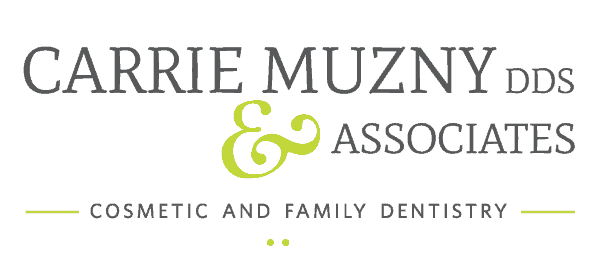
How Does Stress Affect Oral Health?
In today’s bustling, complex society— stress is a typical concern for everyone. With unforeseen events making life harder for people around the world over the past two years, stress has continued to be a challenging task to handle and for many, has taken a toll on their mental and physical health. Stress will begin to significantly impact your mental condition if you are always working under pressure and do not receive any rest or relaxation.
Sometimes, stress can also be beneficial as it encourages individuals to take on new challenges and meet the expectations of everyday life. However, dealing with too much stress can produce short-term, or worse, even long-term effects on your health, particularly your oral health. With emerging evidence that stress can cause dental problems, it is vital to understand how to deal with your worries before they cause dental- and other health issues.
Let’s look closely at how stress affects dental health.
The Immune System Under Stress
When experiencing stress, your body overcompensates by overusing the vital minerals and vitamins you consume, weakening your immune system as a result.
Stress also stimulates the body’s hormones to make less saliva. Saliva is a significant antibacterial agent and crucial to fighting plaque buildup, as well as your overall oral health. Thus when saliva production falls, its capacity to combat infection of the gums is diminished considerably. Gum disease, tooth decay, and bad breath are all symptoms of these oral issues that can lead to heart attack, disease, and stroke.
The Link Between Oral Health Problems & Stress
Like every other part of our body, our mouths are vulnerable to the detrimental effects of stress. The following are some of the contributing factors that lead to stress compromising your dental health:
#1. Poor Oral Hygiene
Self-care becomes less relevant when feeling overwhelmed or anxious, and comforting meals with plenty of caffeine, sugar, and carbs can help you relax, but can also be rough on your teeth and overall health. These indulgences might provide temporary relief, but they can contribute to dental hygiene mistakes, such as neglecting proper oral care routines. As a result of an unbalanced diet, you stand an increased risk developing plaque, tooth decay, gingivitis, and their subsequent impacts on your bodily health.
#2. Dry Mouth
Stress-relieving medications can occasionally end up causing your mouth to become dry, culminating in a condition called xerostomia. Establishing an adequate production of saliva is crucial because saliva aids in the elimination and neutralization of the damaging impacts of acids and sugars, which can cause plaque and gum disease..
#3. Canker Sores
A canker sore, aslo known as a aphthous ulcer, appears as a painful white spot in your mouth that can seemingly appear out of nowhere. Although these sores are not outright harmful to your health, they can be uncomfortable and quite painful. Because stress has been seen as a primary factor in the formation of canker sores, reducing anxiety and stress can reduce your chance of developing canker sores.
#4. Gum Disease
Research on stress and oral health has associated negative emotions and stress with gum disease. Constant pressure causes your body to create more cortisol, which triggers gum inflammation and increases the risk of gum disease.
#5. Teeth Grinding
Teeth grinding, also known as bruxism, is a frequent symptom of stress and can occur when you’re asleep or awake. Over time, your teeth may get chipped or worn down as a result. You may also experience facial pain and headaches that may interrupt your sleep schedule, contributing to an already stressful situation.
#6. TMJ Disorders
TMJ (temporomandibular joint disease), also known as lockjaw, is a stress-related condition that affects the joints in your jaw due to clenching the jaw repeatedly. TMJ symptoms include chronic discomfort, such as clicking and popping in the jaw. TMJ issues can have a substantial influence on your dental health, and can cause joint pain, inflammation, and even the development of airway issues during sleep.
Relax & Protect
Finding ways to relax and reduce stress levels is an effective method to safeguard your oral health from the harmful effects of stress. The following are some excellent relaxation techniques:
- Exercise. When you exercise, your body starts releasing more testosterone, dopamine, serotonin, and endorphins into the bloodstream, all of which support better health.
- Sleeping. Countless individuals have a hard time sleeping, and when we are tired, our bodies may find it difficult adapting to and coping with stressful conditions. Every night, attempt to get the recommended 7-9 hours of sleep, and make sure to avoid screens for 2 hours before bedtime to allow your body’s circadian rhythm to normalize.
- Eating. Providing your body with the proper amount of nourishment it demands to function can reduce your susceptibility to stress. Talk to you doctor about your dietary needs and plan for your meals.
Avoid Putting Your Oral Health at Risk by Limiting Your Stress Levels
At Carrie Muzny D.D.S, our integrated dentists take a comprehensive approach to dentistry. We are not only aiming to treat any dental issues you may be experiencing, but we will also enlighten you on the effects of stress on your physical and oral health. So, the moment you start noticing any damage to your smile as a result of stress, set a thorough evaluation with our team so that we can discuss your treatment options.
Sometimes we all make mistakes

